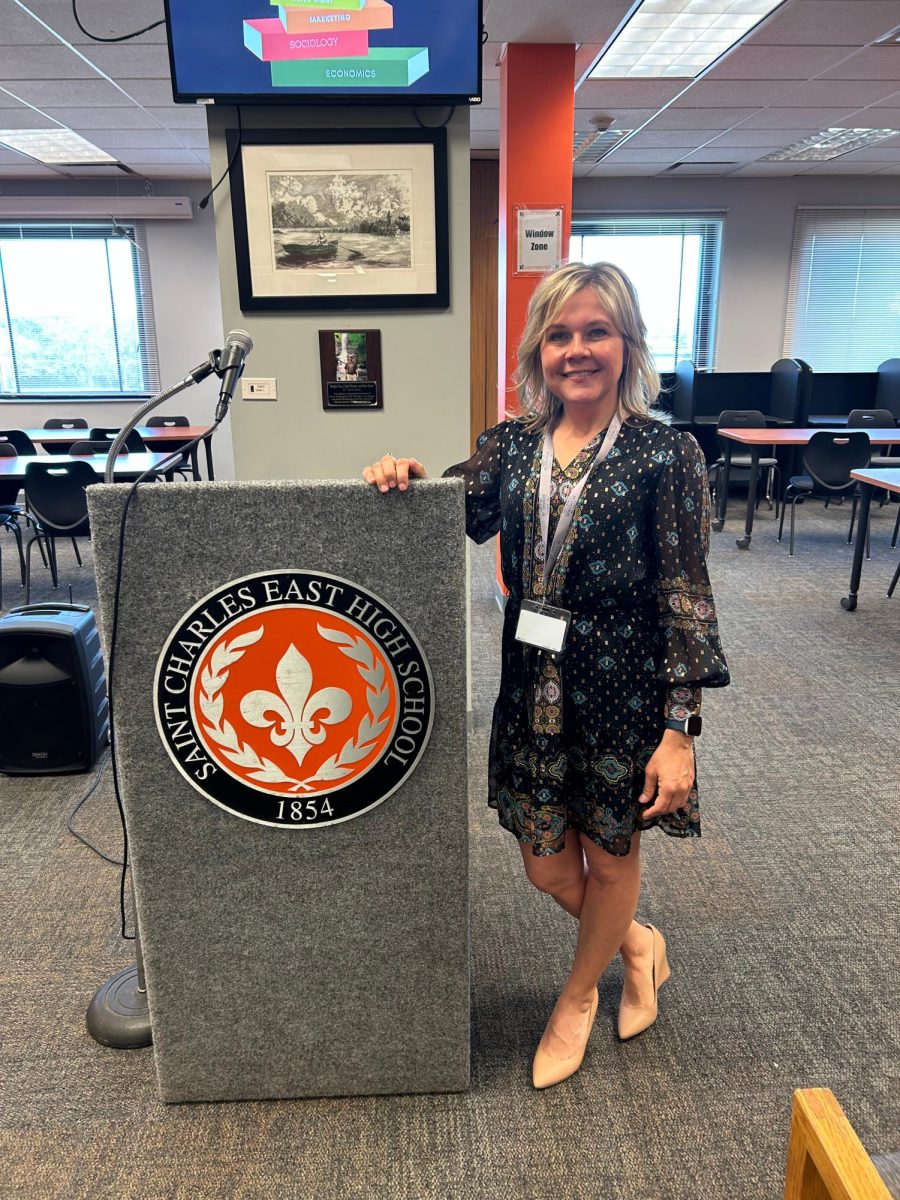
The St. Charles School District currently has a system where middle school students are given the opportunity to take world language classes. Students can choose from the three world languages offered in D303 (French, German and Spanish) which will transfer to their high school credit and allow them to be in a higher-level world language class when going into high school.
At present, level one of world language classes in middle school is split up into an A and B system. Sixth-grade students can take level A which would cover the first semester of level one and seventh-graders can take level B which would cover the second semester of level one. This allows the pacing to be slower, which helps students adjust to the difficulty of learning a new language. In eighth grade, students would take all of level two without the A and B system, allowing students to go straight into level three as a freshman.
However, starting next year, the middle school world language level system is being redone. According to East Spanish teacher and World Language Department Chair Meghan Mitchell, sixth graders will no longer have the option to take level A of a language. Instead, all sixth-grade students will be required to take a nine-week course called World Language Explore (WLEX), in which students will have a taste of French, Spanish and German language and culture. In seventh grade, students would have the option to take WLEX two (which would be a semester-long), not take world language at all or take all of level one of a world language to get high school credit. This is the result of the district’s decision to eliminate the A and B system. In eighth grade, students would take level two of a language if they took level one as a seventh-grader or they would take level one of language if they took WLEX two or no world language before.
Initially, the news was that the district was going to drop world language classes from being taught in middle school altogether, Mitchell said. “There was some concern with that, because you have students who want to get ahead in language, or they know they want to eventually go to AP, so we were worried because that’s going to kill our upper levels because they’re not going to have the option to take AP, [level] four or five, but we did talk with people at district, and I think this plan is a lot better.”
According to the Illinois State Board of Education, “Illinois will have a two-year world language graduation requirement beginning for students who enter ninth grade in the 2028-29 school year.” This means that starting in the 2028-2029 school year, World Language will no longer be considered an elective as it will be a required class. However, if a student receives the Illinois State Seal of Biliteracy anytime during their high school career, they automatically receive two years of world language on their high school transcript and, therefore, are exempt from taking two years of world language.
Under this new Illinois law, the state will not accept the A and B system as completing a year of world language, but this will not affect people who have already received one year of credit through this system. “They’re getting rid of A and B because of the [two-year world language] high school graduation requirements. It needs to be a high school course, and we don’t offer A and B in high school. So for that reason, they can’t offer it in middle school for students to get the credit because it’s not technically a high school course,” said Mitchell.
Because of this change in high school graduation requirements, there is expected to be an uptick in students enrolled in World Language at East, allowing languages such as French and German, which have lower enrollment, to see more popularity.
East and North French teacher Jennifer Goss, who teaches the only AP French class in the district, explained her thoughts on the changes coming to the world language system. “I’m a huge advocate for learning another language, and this change will give the opportunity to those who might not have otherwise considered it.” Due to AP French’s lower enrollment, the class is historically comprised of students from North and East and only runs at one school. This means that students from the other school have to be shuttled. If there was higher enrollment in AP French and other upper-level foreign language classes in less popular languages at East such as French and German, there is a higher likelihood that the classes could be run at both schools and therefore not need that transportation inconvenience. However, there is no certainty that these changes will allow upper-level classes to run in both St. Charles East and North.
Goss went on to say, “I hope we can keep and even increase our upper-level enrollment because that’s where so much of the ’magic’ happens. […] We know busing is not ideal for students, teachers or the class as a whole, so it’s always my goal to encourage and motivate students to sign up for the next level.”
Goss also explained her thoughts on the importance of bilingualism. “Learning another language does amazing things for your brain in general, and opens your mind and creates awareness of other cultures, traditions and perspectives.” So perhaps these new world language changes will not only help grow the number of multilingual students at East but also help foster understanding of our diversities.








